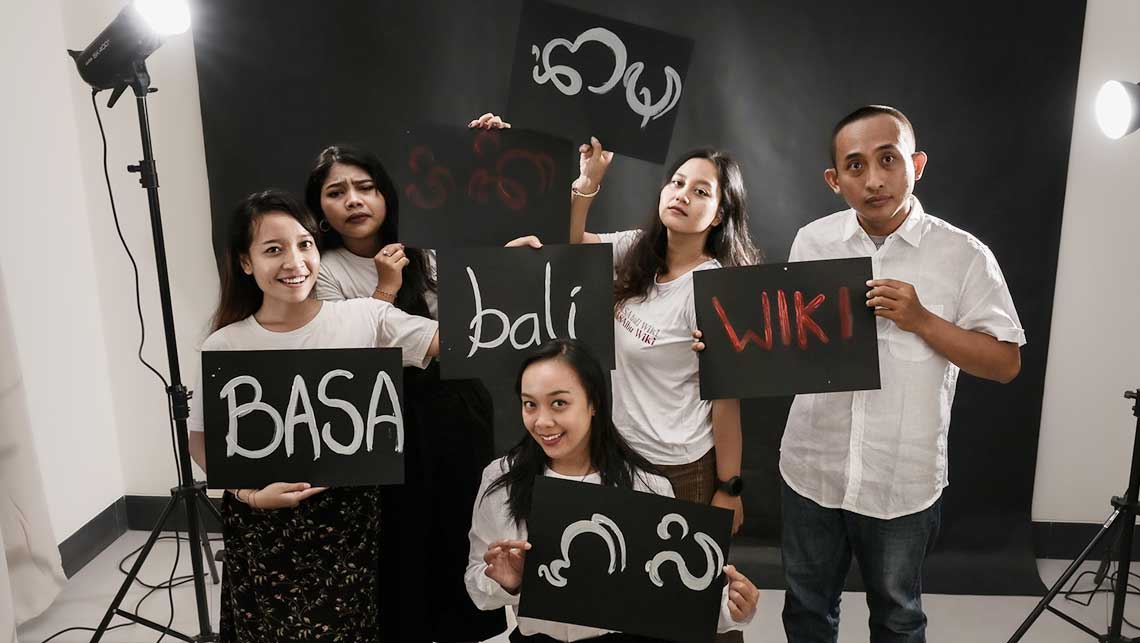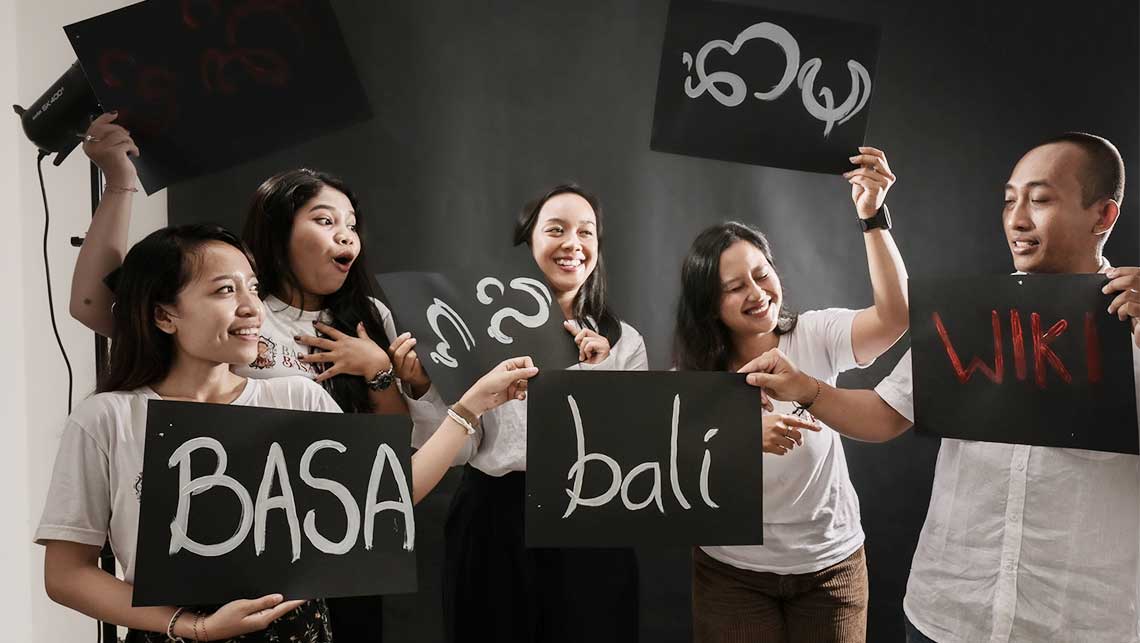Photos and article by Debra Reich (“Dian”) of Sawidji Gallery.

On a delightful Monday afternoon, I found myself seated at a table with five enthusiastic individuals who shared a passion for language, culture, and community. The team comprised Clara, Ayu, Gus Arya, Widia, and Sri, who were all members of BASAbali Wiki, a digital platform dedicated to promoting Balinese language and culture. As I sat there, I couldn’t help but be drawn in by their infectious energy and positive outlook.
BASAbali Wiki, with over 3.2 million users, is a digital platform that deserves recognition and attention, particularly from those who share a close relationship with this beautiful island. In this era of multi-dimensional communities, our Bali identity is deeply rooted in culture and heritage, but it is also part of a global, digital community that has emerged as a result of technological advancements. This digital age has brought us all together as part of a wider community and a broader consciousness.
Bali, an idyllic island with ancient traditions and a rich culture, draws millions of visitors every year. However, this influx of tourists has also brought its own set of challenges, particularly for the youth who are torn between their traditional heritage and global identities. I was honored to spend time with the BASAbali Wiki team, who give a voice to this dynamic generation and help preserve Balinese heritage and culture while adapting to technological waves.

The term BASAbali Wiki derives from three words: Basa-Bali-Wiki, which translates to Bali Language Wiki. Language lies at the heart of Balinese culture, and the practice, study, and appreciation of the native Balinese language is central to BASAbali Wiki. The other word, “wiki,” is a Hawaiian term meaning “fast” or “quickly.” The wiki platform is indicative of a collaborative community and a digital platform for sharing information.
The voices of the BASAbali Wiki team provide a glimpse into the passion and personalities behind the platform, demonstrating its vital role in preserving heritage and culture while adapting to technological advancements. When asked why they enjoyed being part of this project, the team’s response was simple: “Because the language is cool! And we want to encourage millennials to keep learning Balinese language.” The online dictionary, or “Kamus,” is a key part of BASAbali Wiki, facilitating translations between Balinese, English, and Indonesian.
Bali’s native language is encoded in their DNA, culture, and psychology. Some concepts unique to the Balinese language cannot be translated into any other language. For instance, “magibung” means “to eat together.” It carries a cultural and subtle nuance that suggests togetherness while simultaneously implying that this “eating together” is taking place in a temple or at a ceremonial event where the rules, usually dictated by the caste system, are relaxed. Another meaning of “magibung” is “traditional” food that one eats with hands rather than cutlery. The word “magibung” contains a lot of cultural nuance, and it would be a shame to see it fall out of use.

Although Balinese language is taught in schools, it may lack contextual relevance, leading students to feel disconnected from their native language. BASAbali Wiki’s mission is to nurture a love of culture and language through community awareness and digitalization. It is an inclusive online dictionary and information hub that is open to the community to share their stories and achievements.
Public participation is crucial for the growth of communities, and BASAbali Wiki actively reflects its community-centered values. From online events and competitions to open discussions through social media on current event issues, the platform offers language-learning resources ranging from the online dictionary to YouTube tutorials. As a community-based platform, everyone can participate and be present, heard and be an active participant.
Recognized by provincial governments across Indonesia, UNESCO and the IEEE.
Visit and participate in basabaliwiki.org